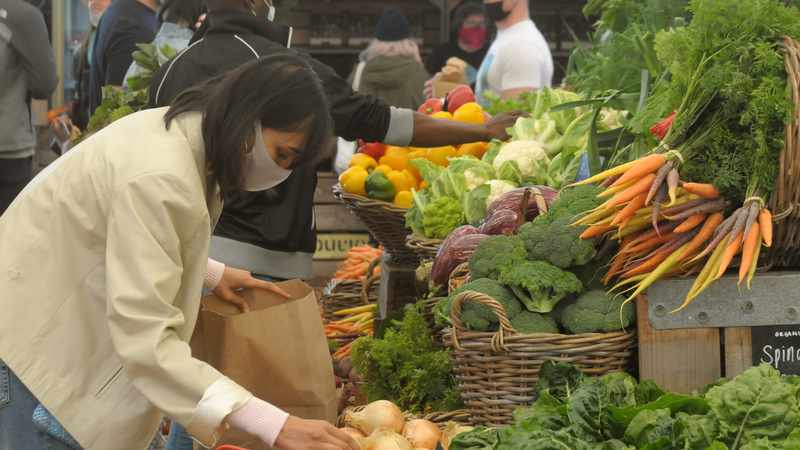Experts have sounded the alarm over the bans instituted by neighbouring countries on lucrative vegetable exports as it will exact a hefty blow to the Western Cape’s export market.
The Department of Agriculture called for an urgent intervention following the ban of vegetable exports by Namibia and Botswana.
Namibia instituted the ban effective from August 1 while Botswana prohibited imports in January, raising concerns that the move could reverse strides made by the province in advancing market reach in Africa.
The ban includes tomatoes, potatoes, beetroot and cabbage.The two countries cited the need to protect their own local
The department’s Daniel Johnson said the union, formed by the five countries, Botswana, Eswatini, Lesotho, Namibia and South Africa, were a major source market for the province.
“Of the Western Cape’s total vegetable exports to the Southern African Customs Union (Sacu), approximately 75% were destined for Namibia and Botswana combined.
“Import tariffs and non-tariff barriers (obstacle to international trade that is not an import or export duty) continue to represent key barriers to South Africa’s agricultural export.
“Once import tariffs and non-tariff barriers become arbitrary or unjustifiable, they pose a discriminatory challenge for an export market, countering the benefits of a duty-free trade formed through customs unions or regional economic regions,” Johnson explained.
The government of Botswana said it only planned to review the ban after two years, while Namibia’s position remains unclear.
Agricultural analyst a, Sibusisiwe Maseko, said protectionist measures applied by international countries was fast becoming a concern.
“The Western Cape agricultural sector is highly export-oriented. It accounts for only 21% of national agricultural production, but 45% of agricultural exports from South Africa to the rest of the world originate from the Western Cape in terms of rand value,” she said.
Maseko stressed that there have been worrying incidents of global markets applying protectionist measures in a way that undermines free trade and threatens the viability of South Africa’s agricultural sector. This could leave consumers vulnerable to food price hikes.
She said this as SA was cleared last month for citrus fruit that was halted from entering the EU.These regulations required imports of citrus fruit from Southern African countries to undergo mandatory cold treatment processes and pre-cooling steps for 25 days before importation.
The EU published these regulations as a means to address false codling moths from orange exports, a polyphagous pest that affects many important South African export crops, such as citrus, stone fruit and avocado.
Maseko said the regulations cost the local farmers over R200m in revenue.
“This era of protectionism (means) that exports will be become a politicised topic and national government must become more proactive in protecting South African exports and diversifying markets, to minimise our vulnerability to shocks when traditional partners close their borders to our goods and ensure continued growth of the agricultural sector,” she concluded.
Agri Western Cape’s Jannie Strydom said effects of the bans would be felt in both the short and long-term.
“In the second quarter of 2022, about 20% of all South African exports of said commodities were exported to these two countries. We sincerely hope that these countries will revise their decision and open their borders to South African produce,” Strydom said.
The Centre of Excellence in Food Security’s director, Professor Julian May, said since both countries have populations smaller than South Africa, the impact of the ban is likely to be more felt more by their citizens.
”The impact is likely to be more severe on their own populations than ours, especially for the informal ‘bakkie’ traders that buy in South Africa,” said May.
His co-director, Professor Lise Korsten, said there was a need for an inclusive strategy in light of global warming that affects countries.
“Perhaps we need a regional strategy such as food hotspots and ‘you grow this better than that, so focus on this and we focus on that.’
“A need also exists to become self-sufficient and, in fact, the food sovereignty debate is moving to the fore,” Korsten said.
The Department of Agriculture, Land Reform and Rural Development’s spokesperson, Reggie Ngcobo, said they received a letter from AgriSA and are “planning a meeting with them to understand their issues. Then will be able to engage with those countries.”



